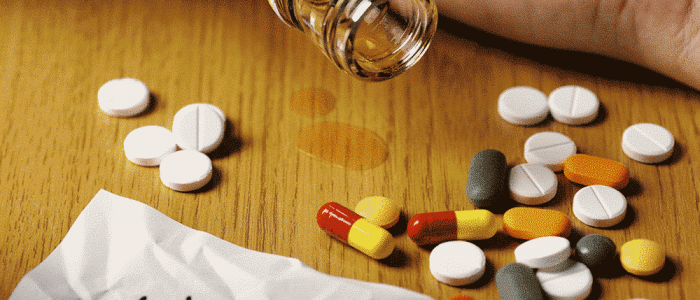Do you or someone you know has an addiction problem and you want to know what options you have? When does addiction become a problem and what can you do to fix it? Is it possible to detect an addict and is there something we can do for that person?
It is not always easy to recognize it, but the first step to overcome any is to assume that we have an addiction problem.
Addictions are defined as a condition that affects reward, motivation, and memory functions in the brain.
The most obvious clue that we are facing an addiction is evident when the individual neglects other areas of his life to fulfill his wishes to consume the substance or to adopt a harmful habit of behavior.
The most characteristic signs of an addiction are:
- Lack of control, or the inability to stay away from the substance or behavior.
- Isolation. Reduction of social interactions, neglect of certain commitments and abandonment of relationships.
- Adverse physical effects, such as withdrawal syndrome or increased tolerance, which causes higher doses to be needed to achieve the same effect.
Although the signs described above are usually the most frequent, the degree of intensity of each one will depend on how long the addiction is suffered.
Unlike a healthy person, who may be able to eliminate harmful behaviors from his life more easily, an addicted person will simply deny that there is a problem, and will try to find ways to justify such behavior.
What types of addictions are there?
When we talk about addiction we usually refer to the abuse of certain substances. However, there are certain behavioral addictions, such as gambling, that also require very thorough addiction treatment.
We speak of addiction when someone is unable to systematically refrain from adopting a certain behavior or consuming a certain substance, especially when it is at the cost of physical or mental health.
Some of the substances that generate greater dependence and, therefore, greater addiction, are the following:
- Nicotine or tobacco.
- Alcohol.
- Inhalants, such as cleaning products, paint, or sprays.
- Legal or illegal drugs.
- Medicines.
There are also studies that defend that behavioral addictions can be as serious as substance addiction. Among the most common behavioral addictions we find:
- The game.
- The job.
- Sex
- Shopping.
- The videogames.
- Internet, social networks, etc.
Any of these addictions requires the identification of warning signs to seek to find the help that is needed.
How to identify the initial signs?
In the earliest stages, an addicted person may not show telltale signs of addiction, but among the most notable clues you can spot are:
- Experimentation with substances or behaviors.
- Family history.
- Sudden interest in a substance or activity. Attraction for situations where the substance or behavior is present.
- Excessive control or total absence of it without any remorse after the episodes.
When it comes to social behaviors, such as drinking or smoking, it is more difficult to determine if it is an addiction problem. Sometimes what seems like an addiction could simply be an experimental phase or a form of stress management. But when an addiction is left untreated, it can turn into a higher risk habit or a serious illness.
What changes in personality does an addiction cause?
After the experimentation phase, it is normal that certain changes in behavior and personality begin to be evident. These changes may be infrequent at first, but gradually they can develop:
- Lack of interest in hobbies or activities that used to be important.
- Rejection of personal relationships and avoidance of social approaches.
- Abandonment of obligations such as work.
- Taking risk attitudes, such as taking drugs or maintaining certain behaviors.
- Ignorance of the negative consequences of your data.
- Modification of sleep patterns that lead to chronic fatigue.
- Increased secrets, where the individual lies about the amount of substance used or the time spent on behavioral addiction.
These changes can emerge over time as addicted people tend to surround themselves with others who reinforce their habits. When a confrontation arises, they usually make excuses to justify said conduct or behavior.
What changes in health does an addiction cause?
Another way to identify an addiction is to pay attention to the individual's physical or mental health. Whether it is a drug addiction or a behavioral one, your health will almost always suffer.
Some of the most notable signs that affect health are:
- Irritated or glassy eyes
- Constant weakness
- Unexplained injuries.
- Sudden weight loss or gain.
- Deterioration of skin, hair, teeth and nails (especially with drugs such as methamphetamines or cocaine).
- Physical symptoms before withdrawal: sweating, tremors, nausea and vomiting.
- Memory loss or problems
- Change in the way you speak. Slurred words or sudden ramblings.
- Greater tolerance to the substance.
The following changes can also be signs of an addiction problem:
- Unexpected mood swings
- Aggressive behavior.
- Irritability.
- Depression.
- Apathy.
- Suicidal thoughts.
Once any medical reason for someone's health is ruled out, consider whether the severity of the addiction is being underestimated. If there is no other reason, you may want to consider an underlying addiction problem.
Long-term consequences of an addiction problem
In later stages of an addiction, the negative effects may be more permanent or have long-term consequences. A person with a serious addiction problem can allow, ignore or trivialize the result of continuing with these habits.
Among the potential consequences we find:
- Contraction of infectious diseases (especially through the use of shared needles).
- Dropout from school or reduced academic performance.
- Impaired relationships with friends and family.
- Loss of all reputation.
- Arrests or imprisonment.
- Evictions for home payments or bills.
- Loss of work.
- Loss of rights, such as parental authority.
Although the above can also happen without the presence of an addiction problem, the reality is that the chances of it happening when an addiction is present are very high.
Before considering that someone has an addiction problem, it is important to determine whether the problem is the result of an isolated incident or the development of an addiction.
What to do if someone has an addiction problem?
The priority is to access treatment as soon as possible. If you or someone you know has an addiction that is causing them problems, you can find an addiction center where they confidentially offer answers and provide treatment for those types of problems. You can also consult your doctor, a local treatment center or support groups.
Addictions affect many areas of a person's life. The most effective treatments usually include several phases that can vary from person to person. These steps can include detoxification, behavioral counseling, and long-term follow-up.
If you want to help a family member or friend in their recovery process, then you can:
- Read more about the substance or dependency behavior and its treatment.
- Maintain involvement, accompanying your loved one throughout their treatment.
- Avoid judgments and situations that trigger your addiction.
- Speak up and express your concern when the person relapses.
While it is a treatable addiction, in most cases, when the individual wants, recovery is usually successful.



